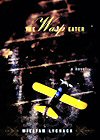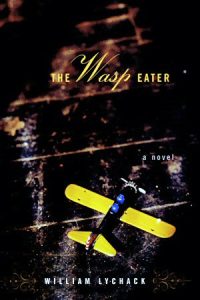The Story Behind the Book
I never really knew my father. He left my mother when I was a year old and died when I was nine. I remember meeting him only twice at his family farm, a calico horse stepping on me that first visit, this man I knew from photographs giving me an Indian hatchet to stop my crying. Funny the things you don’t forget: a whole world of streaming shadows and all I see is a six- or seven-year-old boy sitting on the porch with that tomahawk. The boy’s unwrapping the rawhide straps and feathers from the wooden handle, so he can practice chopping them. Somehow he’s gotten it into his head that the more you use a blade the sharper it’ll become. He’ll remember his father appearing at the screen door to ask for the leather, but the boy’s already made quick work of it and holds a handful of tiny pieces up to the man. Just that wince on his father’s face-part disgust, part disbelief, part utter exasperation-the man doesn’t need to say a word before turning back into the house.
I can only imagine the relief he must have felt to see us drive away, his son creating nothing but trouble for him. Our second visit didn’t go much better. The beagle we brought with us fell between the bales of hay in the barn. My father had to break down the entire hayloft, bale by bale, a day’s work to rescue the whimpering dog.

How, of course, could such scraps not have whetted my appetite for him? How could I not have worried and wondered over this man I never knew? How could I not want to restore something like a family history? Wouldn’t I want to fill in this hole that I hadn’t even known was there? Meet my father’s side of the family? Travel to Eastern Europe, live in Greenpoint, in Bayside, cull every letter and photo and story, live amongst ghosts?
Surely, it must be true, as someone said, it’s deprivation that makes people become writers, if they have it in them to be writers at all. What novel isn’t, I suppose, autobiographical at some level? Yet what story doesn’t come alive in its magic ifs? What if my father didn’t want to leave our family? What if we could have had a last hurrah together? What if I could recover something that was, ultimately, unrecoverable?
In what must have been a fit of despair over the novel, I once unloaded all the accumulated doubts and worries I had about the book and my life to one of the many fathers I borrowed, the writer William Maxwell. In a letter back to me, amidst snippets of advice and news, he wrote:
Probably the reason your novel disappears on you is that there is really no model for it, and this makes you lose confidence. Possibly you are thinking that you don’t know enough about your father-about the facts of his life. This is not true, or if true, beside the point. There is so much that we know that we don’t know we know. All day long we are absorbing intuitive information about other people, about life, about ourselves. It is all true, all there to draw upon. Try to listen to your feelings as you would to the sound in a seashell, and then put them down on paper.
For the last seven years I have had that letter on the wall in front of my desk and have tried to dowse the feelings of my father, bring him back to life, in order to lay him to rest. I have tried to inscribe all the difficulties of caring too much about a story, the impediments becoming part of the tale. Even the dual first- and third-person point of view became, for me, a voice of trauma-the child in the scene, yet above the scene-as it was when my father lay in his coffin and his son wouldn’t walk up to him lying there. Most of all, perhaps I tried to write the book that I needed to read, a record of a time my father and I never had together.
About the Author
William Lychack received his B.A. (1988) in philosophy from Connecticut College and his M.F.A. (1991) from the University of Michigan. Among other places, his stories have appeared in Best American Short Stories, Ascent, Ploughshares, The Seattle Review, and on Public Radio International’s “This American Life.” He has published children’s books, corporate histories, and has worked as a teacher, editor, speechwriter, ghostwriter, journalist, lifeguard, carpenter, bartender, janitor, Mr. Softee Ice Cream Man, and he currently works as a Judo instructor in New York City.
Portions of this novel have appeared in Quarterly West, The Sun, TriQuarterly, and Witness. An earlier version won the Major Hopwood Award at the University of Michigan for 1991.

